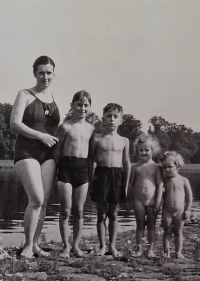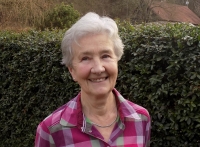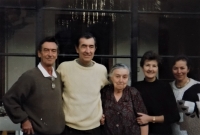Watch what’s going on and make sure this doesn’t happen again
Download image
Renata Horešovská, née Hořejšová, was born on May 22, 1935 in Prague. She has lived in Černošice all his life. He is one of the four children of Miloš Hořejš, the architect of the acclaimed functionalist Hořejš Villa. The family owned a paint factory in Prague, which was confiscated in 1948. On February 25, 1948, Radim’s eldest brother took part in a student demonstration to protest the communist coup and subsequently emigrated. This was the reason for keeping his father in solitary confinement in Pankrác for eighteen months. In 1956 he was imprisoned again on a fictitious charge. During the 1950s, the family struggled with persecution by the communist regime. Brother Ivan spent several years at auxiliary technical troops and sister Tamara, despite her artistic talent, could not study at her dream school of arts and crafts. Renata graduated from Jirásek’s pedagogical grammar school in Prague and taught all her life at a primary school in Černošice. In 1957, she married doctor Jan Horešovský and has two children together.


